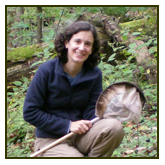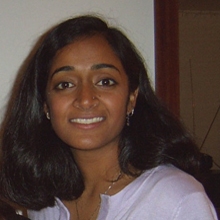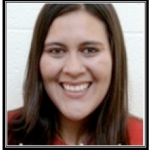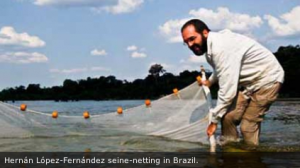Dr. Robert (Bort) Edwards, postdoctoral associate at the University of Rochester, is presenting a talk titled “Biogeography of the Australian monsoon tropics”. Bort did his doctoral work at the University of Queensland studying Australian monsoon biogeography and the systematics of broad leaved paperback trees. He is currently a postdoctoral associate with Dr. Daven Presgraves studying hybrid incompatibilities on the X chromosomes of Drosophila mauritiana and Drosophila simulans.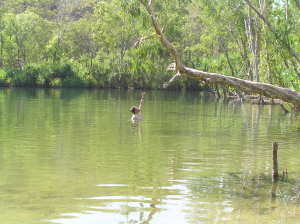
Category Archives: Seminars
EEB Seminar, Friday, April 4: “Species interactions and the evolution of mate choice in Drosophila”
Dr. Kelly Dyer will be giving a talk titled, ” Species interactions and the evolution of mate choice in Drosophila,” on Friday, April 4. Kelly earned her B.S. in Evolution and Ecology from UC Davis, her M.S. from the University of Arizona, and finally her Ph.D. from the University of Rochester. She spent three years at the University of Edinburgh in Scotland as a Royal Society USA Research Fellow before founding the Dyer Lab at UGA in November of 2007. While at UGA, Kelly has been a Lilly Teaching Fellow and she has received a CAREER award from the National Science Foundation and also a New Scholar in Aging Award from the Ellison Medical Foundation. Kelly is broadly interested in evolutionary genetics and molecular evolution.
EEB Seminar, March 28: “Reproductive isolation in Anolis lizards”
Donut Talk 4/7
Two Talks: Dept. of Biochemistry and Biophysics Seminar & GWIS Seminar
Lorraine Symington, professor of microbiology and immunology at Columbia University, will present two talks at the Medical Center Thursday, March 20. At 2 p.m., she’ll present “Mechanism and Regulation of DNA Double-Strand Break Repair” at 2 p.m. in Auditorium K-307 (3-6408) for the Department of Biochemistry and Biophysics Seminar Series. At 3 p.m., she’ll discuss “The Joy of Cooking: From Cookies to Plasmids” at the Graduate Women in Science meeting in the Case Method Room (1-9576).
EEB Seminar, Friday, March 21: “Population genomics & molecular evolution in Caenorhabditis elegans”
EEB Seminar, Friday, March 7: “Lineage-specific genes in Spiralia”
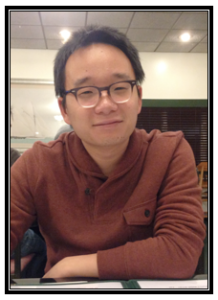 Longjun Wu, a graduate student in the Lambert lab, will be giving a talk entitled, “Lineage-specific genes in Spiralia,” on Friday, March 7. Longjun comes from the Southeast coast of China, where he received his B.S. in Biology from Xiamen University, studying genome evolution of Amphixous in Dr. Yiquan Wang’s lab.
Longjun Wu, a graduate student in the Lambert lab, will be giving a talk entitled, “Lineage-specific genes in Spiralia,” on Friday, March 7. Longjun comes from the Southeast coast of China, where he received his B.S. in Biology from Xiamen University, studying genome evolution of Amphixous in Dr. Yiquan Wang’s lab.
EEB Seminar, Friday, February 21: “Speciation and the large X effect”
EEB Seminar, Friday, February 14: “Evolutionary Genetics of the Selfish Segregation Distorter Complex”
 Cara Brand, a graduate student of the University of Rochester and member of the Presgraves Lab, is presenting a talk titled, “Evolutionary Genetics of the Selfish Segregation Distorter Complex,” on Friday, February 14. Cara received her B.S. in Biology from the University of Maryland, College Park. She then spent a year as research technician in Jerry Wilkinson’s lab, working on hybrid male sterility and meiotic drive in stalk-eyed flies. She is now studying the evolution and genetics of recombination and the selfish Segregation Distorter complex.
Cara Brand, a graduate student of the University of Rochester and member of the Presgraves Lab, is presenting a talk titled, “Evolutionary Genetics of the Selfish Segregation Distorter Complex,” on Friday, February 14. Cara received her B.S. in Biology from the University of Maryland, College Park. She then spent a year as research technician in Jerry Wilkinson’s lab, working on hybrid male sterility and meiotic drive in stalk-eyed flies. She is now studying the evolution and genetics of recombination and the selfish Segregation Distorter complex.
EEB Seminar, Friday, February 7: “Ancient adaptive radiations and morphological convergence in Neotropical cichlid fishes”
Dr. Hernán López-Fernández will be giving a talk titled, “Ancient adaptive radiations and morphological convergence in Neotropical cichlid fishes,” on Friday, February 7. He is a Curator of Ichthyology in the Department of Natural History at the Royal Ontario Museum in Toronto, Canada. As a Curator at the ROM, Hernán’s research focuses on the evolutionary biology of South and Central American cichlids. The freshwaters of South and Central America are estimated to harbor well over 6,000 species of fishes, more than any other biogeographic region on Earth. Among this great diversity, cichlid fishes are remarkable for their morphological, ecological and behavioral diversity. Although cichlids are well-known models of adaptive evolution in lakes, little is known about their diversification in rivers. Hernán combines field and laboratory research in systematics, biogeography and evolutionary biology to study the radiations of American cichlids as models of the evolutionary history of Neotropical fishes. Comparative evolutionary studies of cichlids and other groups should provide a powerful tool to understand the origin of the most diverse freshwater fish fauna on the planet.

